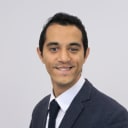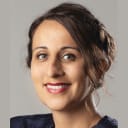Applying to university
 Proposed by Comité de la Démarche Accessible Updated on il y a 2 ans
Proposed by Comité de la Démarche Accessible Updated on il y a 2 ansRegistering at university allows you to start or continue studies in France.
There are 3 types of higher education establishments in France:
- public universities
- private universities
- large public or private schools.
There are around 80 public universities on French territory, in all fields (sciences, letters, languages, arts, human sciences, health, sport, etc.).
They are financed by the French State and deliver national diplomas (Bachelor's, Master's, Doctorate).
The main conditions for enrolling at the university are:
- have the baccalaureate level or have completed high school (12 years of school) (step 1)
- have at least a B2 level in French (step 2).
Take the time to find out about universities and training courses (step 3), and prepare the documents for your file in advance (step 4).
The registration dates and procedures for sending a file are different depending on the universities and courses: it is essential to know the university calendar (step 5).
How to do it?
What happens next?
16 contributors mobilized
 a mugnier
a mugnierAdmin
 nour
nourAdmin
 utilisateur_61623907Writer
utilisateur_61623907Writer nalothmanTranslator
nalothmanTranslator olga b.Translator
olga b.Translator marina bondarenkoTranslator
marina bondarenkoTranslator diplosamTranslator
diplosamTranslator rohullah expertTranslator
rohullah expertTranslator noorTranslator
noorTranslator golkurdTranslator
golkurdTranslator utilisateur_2134382Writer
utilisateur_2134382Writer niknameTranslator
niknameTranslator marianneukraineTranslator
marianneukraineTranslator fatma bouhejbaTranslator
fatma bouhejbaTranslator hugo stéphanTranslator
hugo stéphanTranslator kim.delaunayTranslator
kim.delaunayTranslator
